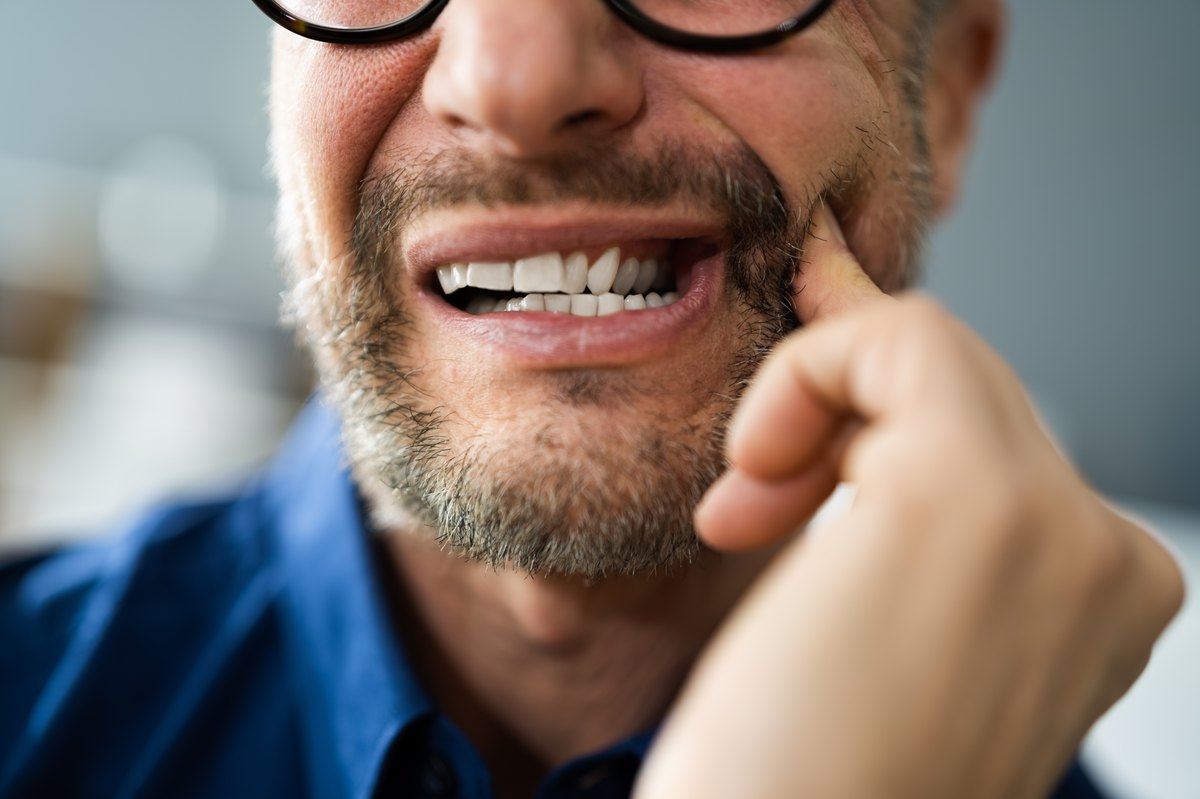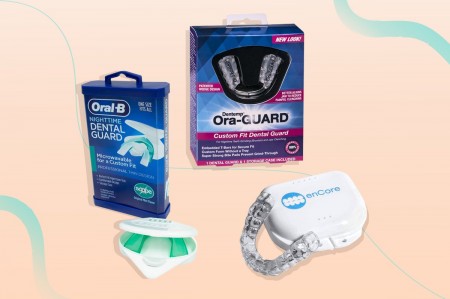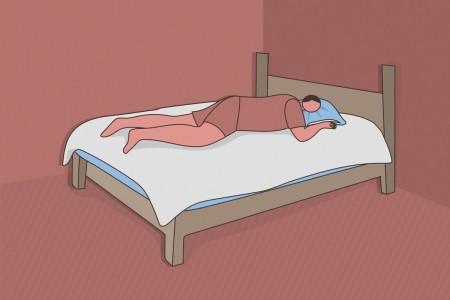
Advertisements
Waking up feeling like someone socked you in the jaw? Morning jaw pain is no joke.
Video of the Day
While you might experience an occasional sore jaw from sleeping in a weird position (more on this later), chronic jaw pain in the a.m. might be a sign of something more serious.
Here, dentist Craig Ratner, DMD, former president of the New York State Dental Association, explains why you might wake up with jaw pain and what you can do to manage or decrease the discomfort.
1. You’re Grinding Your Teeth
Nighttime teeth grinding or clenching is one of the most common reasons your jaw hurts when you wake up.
"Bruxism, commonly known as teeth grinding or clenching, can happen during the night or day, but for most people, it is more commonly a nocturnal problem," Dr. Ratner says.
The issue is, this habit is totally unconscious, i.e., you likely have no clue you're clenching (until you experience pain).
Advertisements
"There are some people who are 'hard-wired' to grind their teeth, meaning they grind during their sleep, just as they would toss and turn," Dr. Ratner says.
"However, the most common cause for teeth grinding is a bite problem," Dr. Ratner adds. "The brain wants the teeth, jaws and all of the muscles around the head and neck to be in a comfortable position, and if it perceives something getting in the way of that position, it will move the jaw to try to 'work out' the interference."
In addition to jaw pain and tired jaw muscles, other signs of grinding include, per the Cleveland Clinic:
- Grinding or clenching loud enough to wake your sleep partner
- Flattened, fractured, chipped or loose teeth
- Worn tooth enamel, exposing deeper layers
- Increased tooth sensitivity
- Earache-like pain in your head or face
- Dull headaches beginning at the temples
- Indentations/scalloping on the sides of your tongue
- Clicking or popping of your temporomandibular joints (TMJ)
Fix it: While it’s nearly impossible to stop something you do involuntarily, there are strategies to safeguard your mouth from pain.
“Simple night guards can sometimes be used to protect the teeth,” Dr. Ratner says.
“However, if the bite position problem is more severe, and you are having very intense or long-lasting pain, a more detailed evaluation by your dentist is probably in order,” Dr. Ratner says. “Your dentist may make you an appliance that helps put your jaw in a better position to take the strain off your teeth and muscles."
Additionally, keeping your stress level in check is also important, as stress can worsen bruxism, Dr. Ratner says.






